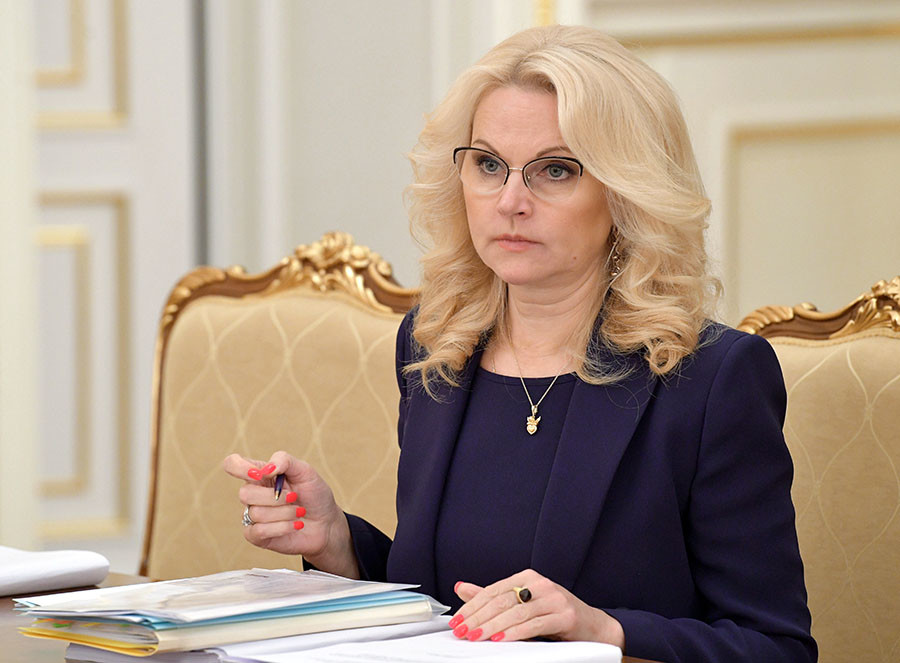Starting October 1, workers in the public sector in Russia will be raised by 4.3%. This will affect those who did not fall under the influence of the May decrees of the president. This was reported by "Rossiyskaya Gazeta". In particular, an increase awaits nannies in kindergartens, personnel officers, lawyers, accountants, specialists in social work, rehabilitation, social psychologists working in budget institutions; maintenance staff of buildings and equipment, in particular programmers, electricians, locksmiths, cleaners.
Financing will go from the federal budget and will extend to all institutions at the federal level - state, budget and autonomous. Regions and municipalities should have pledged money for this increase since the beginning of the year. The Russian tripartite commission for the regulation of social and labor relations previously sent out relevant messages with recommendations on indexation of salaries to state employees by at least 4.3%, and possibly higher. At the same time, at the regional and municipal level, the decision on the salaries of state employees is made by the governor.
- © Alexander Kryazhev / RIA News
In June 2019, the ministry also proposed increasing the salary of civil servants from October 1 by 4.3%. Monthly payments will increase for employees of the Russian Ministry of Foreign Affairs, federal state civil servants in accordance with the positions of the federal civil service that they are replacing, as well as civil servants in accordance with the class awards of justice assigned to them. The size of the increase in salary corresponds to the level of projected inflation.
The third category of state employees
Chairman of the Federation Council Committee on Social Policy Valery Ryazansky said in an interview with RT that there are several categories of budget workers. The first of them is the most capacious - it includes doctors, teachers, nurses, senior medical personnel. It is they who fall into the sphere of wage regulation by decree of the president. In the second category are employees of federal institutions located in the regions. These include, for example, antitrust units, units of federal services. The third category is in the introduction of the constituent entities of the Russian Federation.
“This is the accounting, legal structure of budgetary institutions, junior staff, such as nannies. This contingent should be considered in terms of raising salaries by regional authorities. At the beginning of the year, there was such an appeal from the trilateral commission of our group, which regulates legal relations with trade unions, and this recommendation was given, ”Ryazansky noted.
According to him, the subjects of the Russian Federation have enough funds at their disposal to solve the issue of indexation of public sector salaries.
At the inflation rate
Georgy Ostapkovich, Director of the Center for Market Research at the Higher School of Economics, in an interview with RT, explained that the level of indexation is absolutely justified. This increase will allow workers to save their money.
“I think that the changes will affect not only these workers. Other employees will also have their salaries raised in October, but they will go by a different resolution ... This indexation is almost on a par with the inflation rate. This is legislative compensation, it does not exceed inflation ... This is an absolutely planned increase, which, in general, takes place legislatively every year. It’s just that there will be a separate resolution for civil servants, this is normal practice, ”the expert noted.
- Deputy Prime Minister Tatyana Golikova
- RIA News
- © Alexander Astafiev
Recall that in mid-September, Deputy Prime Minister Tatyana Golikova announced that from October 1, 2020, they will index the salaries of workers in social institutions and science, veterinary laboratories, the hydrometeorological service, medical and social expertise, Rospotrebnadzor hygiene centers, rescue centers of the Ministry of Emergencies, standardization centers, metrology and testing of Rosstandart and others.
“In relation to public sector employees who are not covered by the presidential decree, inflation will be indexed annually - on October 1, their wages will be indexed by 3.8%,” Golikova said.
The so-called May decrees are decrees signed by Vladimir Putin in May 2012. For six years, he instructed to increase the average salaries of teachers, social workers, junior and secondary medical personnel to 100% of the average salaries in the region. Up to 200% should increase the salaries of doctors, university professors and researchers. In February 2019, the President of the Russian Federation stated in a message to the Federal Assembly that it is necessary to maintain the achieved ratio of public sector wages to average wages in the region.
Work on the bugs
The expert of the Russian Institute for Strategic Studies (RISI), candidate of economic sciences Mikhail Belyaev, noted the importance of the fact that the May decrees are not only implemented but also supplemented. For example, in this case, positions were found that did not formally fall under the decree of the president, but he was nevertheless made the required allowance.
“It is good that this flaw was found, and that our leadership had the strength to recognize it and quickly correct it,” the expert noted.
In his opinion, such shortcomings appear because lawyers who work on laws and regulations formulate the text quite concretely, “leaving out of their sight those institutions that formally also relate to the budget sphere, but somewhere the line separates them from purely budgetary organizations. ”
“This, of course, is always positive when it comes to raising salaries for someone and thereby improving their financial situation and satisfaction with living conditions,” concluded Belyaev.
Earlier it was also reported that the government decided to recalculate payments to working retirees. They should increase by 1.4%.

